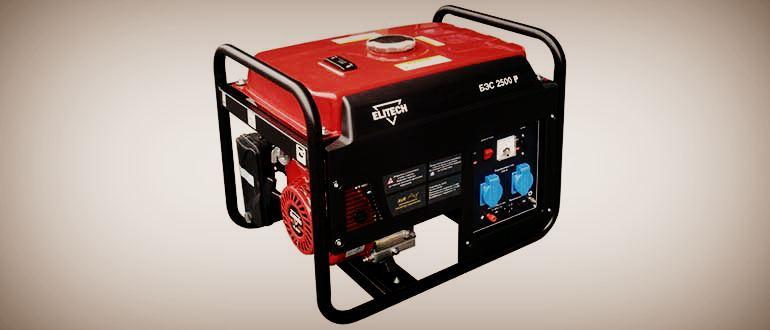Each user wants to purchase a good power plant at an affordable price that will last for many years and will not fail at the most inopportune moment. However, among the variety of different modifications, a lot of questions arise when buying, because outwardly all models are similar to each other.
To figure out how to choose the right generator for your home or summer cottage, you should turn to the opinions and advice of experts. Experienced specialists clearly delineate the area of use of different types of installations, recommend taking into account the cost of maintenance and fuel, and also advise focusing on operating conditions.
Content
Types of power plants
Gasoline installations
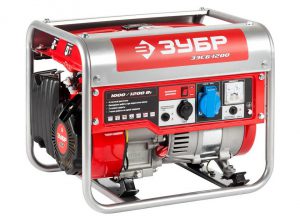
Today, various modifications are available to users, the most popular among them are inexpensive electric generators with a gasoline engine. Manufacturers offer whole lines of gas generators of various capacities and configurations. The units are capable of continuously generating electricity for 4 to 6 hours, after which the engine needs a break. Such generators are perfect for home use: as an emergency power source in the country or in a garage, as well as for construction work in places far from the central power grid.
- Relatively low starting price of equipment.
- Ease of Maintenance - Need to refuel and clean spark plugs periodically.
- A wide range of modifications: gas-fired welding units, power plants with a capacity of 0.65 to 6 kW, single-phase and three-phase models.
- They can be used at temperatures down to -20 °.
- Relatively quiet operating mode.
- Increased fuel consumption and high price per 1 kW.
- The top-end models are designed for no more than an 8-hour shift, after which the installation requires a break.
- Susceptible to moisture.
Diesel plants
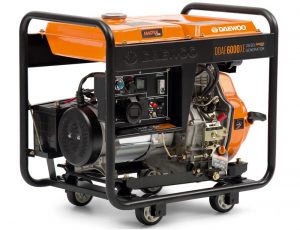
Diesel power plants are superior to gasoline ones in terms of reliability and can be operated for much longer. Most models are equipped with a liquid cooling system, which reduces the risk of overheating and significantly increases the time of continuous operation. The undoubted advantage of diesel generators is a longer service life and a wide range of applications - generators are suitable for a summer cottage or a country house, they can become the main or backup power source at remote sites or large construction sites.
- Optimal price-quality ratio.
- The ability to operate the unit for a long time (depends on the model).
- The average cost of 1 kW - the maintenance of a power plant on diesel fuel costs 50-60% cheaper than using a gasoline unit.
- Increased operating noise.
- The cost of diesel equipment is 1.5 times higher than that of gasoline.
- At an air temperature below -5 ° C, the fuel begins to thicken - for stable operation, additional heating will be required.
- The minimum load on the installation is 30%.
Gas installations
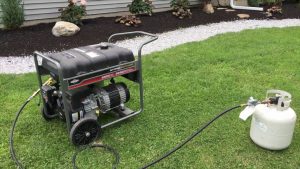
When deciding which generator to choose for your home, it is worth taking a closer look at gas-fueled models. They are a cheaper and more environmentally friendly alternative to liquid fuel power plants. In terms of cost, they are more expensive than diesel and gasoline generators, but they can be connected to the central gas supply line - this is convenient and profitable. Also, gas power plants can be powered from a cylinder filled with liquefied gas.
- Low cost of 1 kW.
- High service life.
- In addition to electrical energy, the unit generates heat, which can be used to heat the room.
- Ease of service.
- Gas electrical installations are the most expensive of all types of generators.
- To power the power plant from the central gas supply line, you will have to agree on the installation in the gas service, as well as pay for the services of a specialist.
- Connection to the gas main, adjustment of work and repairs should be carried out only by qualified specialists. If the generator fails for any reason, it will not be possible to restore its operability on your own.
Combined installations
Power plants with a combined type of power supply are interesting: gas / petrol or gas / diesel. You can change the type of fuel used at any time without interrupting the generator. The advantage of such models is their versatility, in addition, the price of such units is slightly different from gas ones. However, it should be borne in mind that regardless of your desire, the device will have to periodically switch from one type of fuel to another.
Generator selection criteria
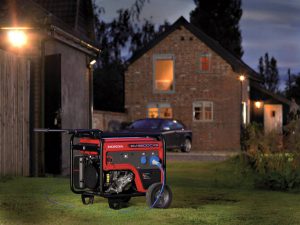
Initially, the criteria for the correct choice of a generator are determined by the needs of the user and the anticipated energy consumers: lighting, household appliances, construction tools. Secondary factors are such as the cost of the device itself, its layout and functionality.
For rare and short-term use, you can purchase an inexpensive gasoline unit with a capacity of up to 3 kW. Low-power gasoline models (the best option when the task is to choose a portable power plant) are mobile, they can be taken on vacation, on the road or to the dacha to power lighting or household appliances, power tools.
Regular operation requires a robust design and a robust engine that can run stably for a long time. The type of fuel is also important: the cheaper it is, the more profitable the purchase will be. For example, instead of an inexpensive gasoline generator, it is better to take a gas or diesel generator - the high price of the device will quickly pay off with low fuel costs.
When carrying out repair or construction work, the decisive factor will be power and functionality. A number of tools and equipment are powered from a three-phase outlet - this should be noted. It is often required to connect several consumers at the same time, and the presence of a second outlet on the dashboard is a necessity. In addition, construction implies a long-term operation of the power plant, therefore, household generators are not suitable for such purposes.
Power and number of phases
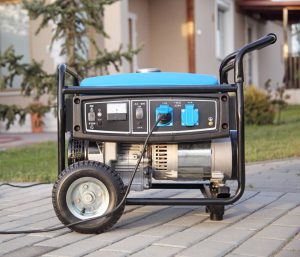
Regardless of the type of unit, the key factor in choosing will be its power. As a rule, in the generator passport, two powers are indicated, active (useful, working) and nominal, as well as which devices can be connected.
The useful power is always lower, but it is on it that you need to focus on when buying. The value characterizes the nominal load at which the generator can be operated for a long time. The rated power determines the ultimate load, in this mode the unit can only be used for a short time, for example, at starting loads.
When calculating the total power of energy consumers, their type and technical features should be taken into account. What you need to pay attention to:
- Number of phases - one or three. Among the power plants on the market there are models for 220 V or 380 V, there are also combined 220/380 V.If the electrical system is designed for a standard power supply (220 V), then it is easier to choose a single-phase generator.
- When using a combined generator 220/380, the active power of single-phase sources should not exceed a third of the three-phase (nominal) power. If, when generating 380 V, the maximum power of the unit is 10 kW, then 1 device for 3 kW or two for 1.5 kW can be connected to it.
- Starting currents - equipment equipped with an electric motor at the start consumes more electricity than indicated in the passport. When calculating the total load, the operating power of the device is multiplied by the starting factor - it must be indicated in the instructions. For example, a microwave oven with a power of 1 kW / h consumes 2 kW at start, otherwise it simply will not turn on.
Taking into account the power of the generator, we recommend choosing models that are 15-20% more powerful than required. The reserve will allow you to save installation resource or connect unplanned equipment.
Type of fuel consumed
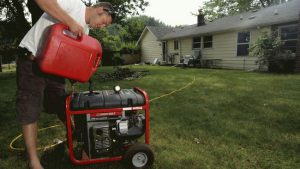
Fuel for a power plant can be:
- gas, including liquefied gas
- diesel fuel
- gasoline (usually 92 or 95 octane)
When choosing a good generator, you need to determine what kind of fuel will be available. If a gas pipeline passes next to an object or house, specialists will be able to connect to it gas generator. The advantage of being powered by gas is low price and environmental friendliness, gasoline and diesel models generate harmful exhaust gases and are practically not used indoors.
Petrol - the most affordable type of fuel, it can be purchased at absolutely any gas station, drained from the tank of a personal car or even bought on the market (it costs much more, but in the event of a force majeure situation, this is a way out). Diesel fuel relatively inexpensive and easy to purchase at a gas station, with a metal canister.
Generator type
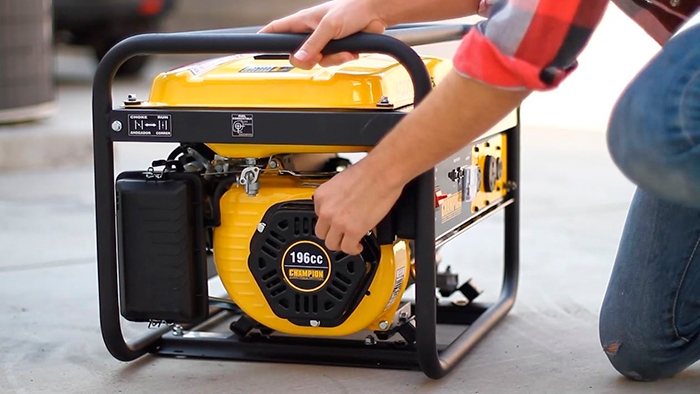
When deciding which generator is better to buy for a summer residence, construction or field work, you should pay attention to the type of generator (alternator). All types of power plants are divided according to the type of electricity generation, which in turn affects the characteristics of service and the quality of the current itself.
There are three main types:
- Synchronous - produce the most "clean", stable current, which has a positive effect on the work of energy consumers, but the presence of the brush assembly complicates the maintenance of the unit somewhat. Change of brushes is necessary from time to time.
- Asynchronous have the opposite characteristics - they are easier to maintain, but along with an increase in the load, the quality of the current also decreases. They have a closed housing and are suitable for construction work on the site, for example, for welding.
- Inverter generators suitable for powering equipment that is sensitive to the quality of the current - acoustic equipment, PCs, besides, they are quite compact, mobile and operate in an economical mode.
Fuel tank capacity
Users rarely pay attention to this indicator, although sometimes the capacity of the fuel tank plays a decisive role in the purchase. By and large, the choice here is not great - such technical characteristics are predetermined by the manufacturer and depend on the ratio of power and continuous operating time.
When there is a choice between two similar models with a gasoline engine, pay attention to fuel consumption. It is convenient when the time of continuous operation is approximately equal to the operating time of the generator on one filling.
It should also be borne in mind that a larger volume of the tank also implies a larger volume of fuel - all this significantly affects the weight and dimensions of the unit. When buying a power plant, one way or another, you will have to choose between frequent refueling or a large, heavy structure.
Running
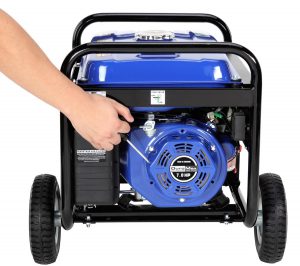
There are three types of generator start-up:
- manual
- electric
- auto
As a rule, all models up to 3-4 kW are equipped with a conventional manual starter. In more powerful ones, a battery is installed in parallel and electric starter - starting with a key is convenient, but for this the generator battery must always be charged.
There are models on sale with automatic start - the automation unit starts the unit on its own in the event of a power outage. Also, these units can be purchased separately and installed on almost any model with an electric starter.
Automatic operation is certainly very convenient, especially when the generator serves as an emergency power source for a private house. However, for stable operation, you will have to regularly service the electrical installation - check the fuel level, refuel, charge the battery. Otherwise, there will be no practical benefit from automation.
Open or closed enclosure
The open model assumes the placement of the motor in a metal frame, the advantage of this type of generator is its rapid cooling. Recommended for use with prolonged switching on and intensive loads. Of the minuses, the model is noisier.
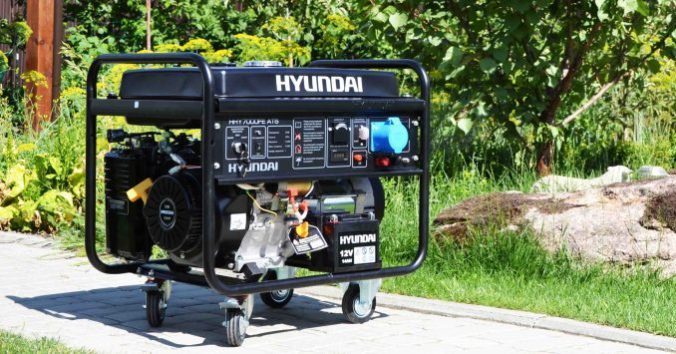
Closed generators have a noise-proof housing with a motor inside. Models are protected from moisture and dust, quiet in operation, can be installed even in the basement. Of the minuses - they need an additional cooling system, a higher price.
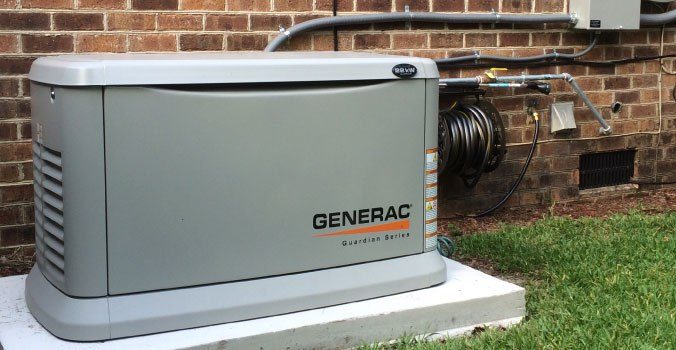
Cooling type
Cooling type is:
- air;
- liquid.
A simple and inexpensive way is an air cooling system, when cooled air circulates inside the motor, which removes excess heat outside. It is quite enough for generators of small and medium power.
Powerful units require more efficient water cooling. With this method, instead of air, water or a special liquid circulates. This cooling system is more expensive, but allows the generator to run for more than 100 hours, while air cooling is limited to a maximum of 10 hours.
Equally important functions
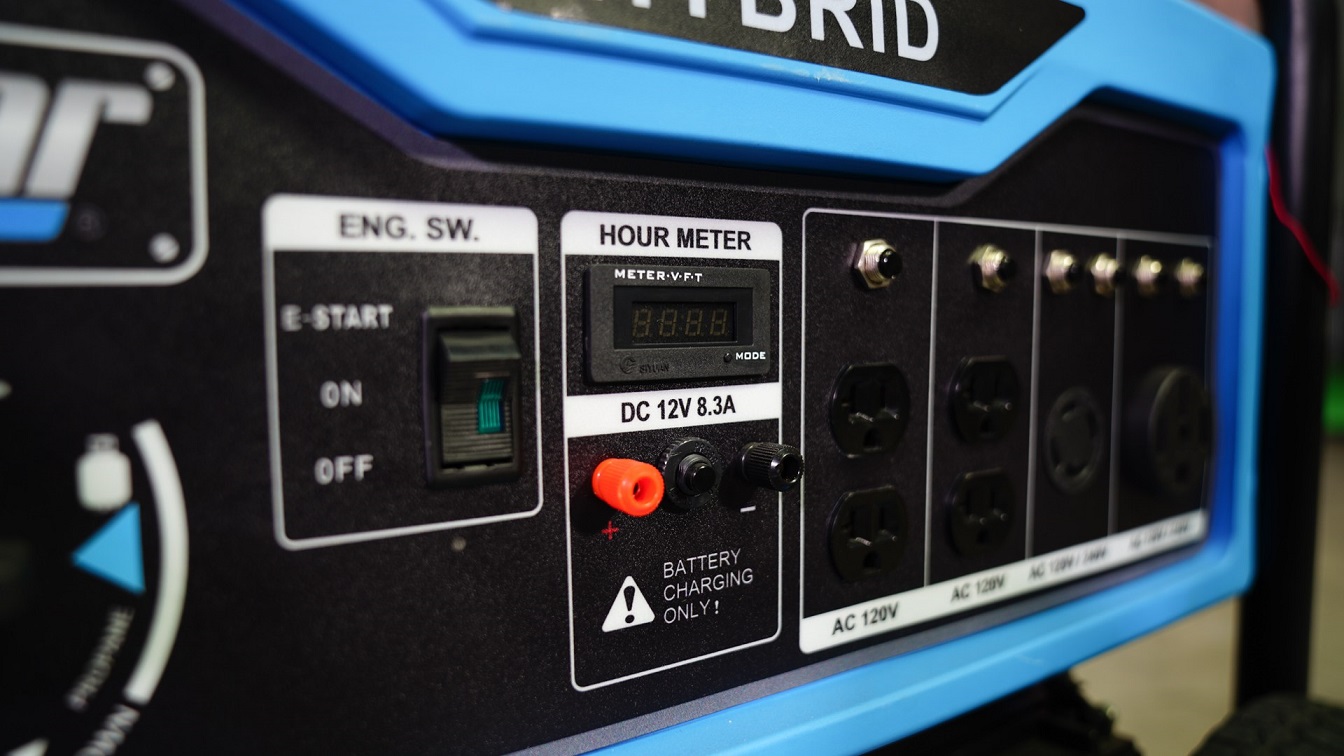
Most often, the choice is made according to the parameters of the generator, but this is not the only factor that determines how successful the purchase will be. In addition to the technical characteristics, the design features and functionality of the installation should be taken into account - some options may affect the final choice.
- Noise level... For gasoline generators, the norm is 74 dB, for diesel generators - 82 dB. Even a small deviation to a large side will have a significant impact on practice.
- Noise casing and muffler - significantly reduce the noise level during the operation of the unit, especially useful for diesel power generators.
- Protective options. High-quality power plants are equipped with functions of protection against short circuits and overloads - their presence reduces the risk of breakdowns and extends the service life of the installation.
- 12V output... From it you can recharge the car battery, you can also connect the car inverter to the outlet. When working in places remote from settlements, this design feature will come in handy.
- Number of sockets... The best option for an average installation is 2 outputs for 220 V, if the likelihood of connecting three-phase consumers is expected - you can take a combined model (220/380). However, during its operation, the possibility of phase imbalance should be taken into account, in order to avoid this, you will have to carefully calculate the power of the connected consumers.
- Regulator stabilizes the output voltage, important in the presence of equipment that is sensitive to voltage surges.
- Ergonomics and convenience... The comfort of use is influenced by such little things as a convenient handle for carrying, the presence of additional wheels.
Which generator to buy?
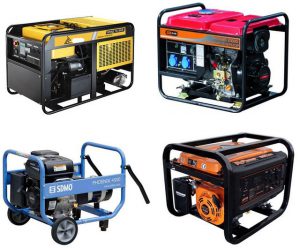
Sometimes two similar models differ only by manufacturer, and the question arises - is there any point in overpaying? Yes, there is, if you have an installation from a reliable manufacturer with a well-developed network of service centers. Judging by user reviews on forums on the Internet, the best manufacturing firms in 2020 are:
- Honda
- Fubag
- Hyundai
- Bison
- Champion
Outcome
Thus, the correct choice of a good and high-quality generator involves several stages: determining the area of use, calculating the required power, getting to know the technical features and choosing a manufacturer. Based on the experience of professionals, you can easily determine how to choose a good generator in terms of power, reliability, type of fuel used or functionality.

